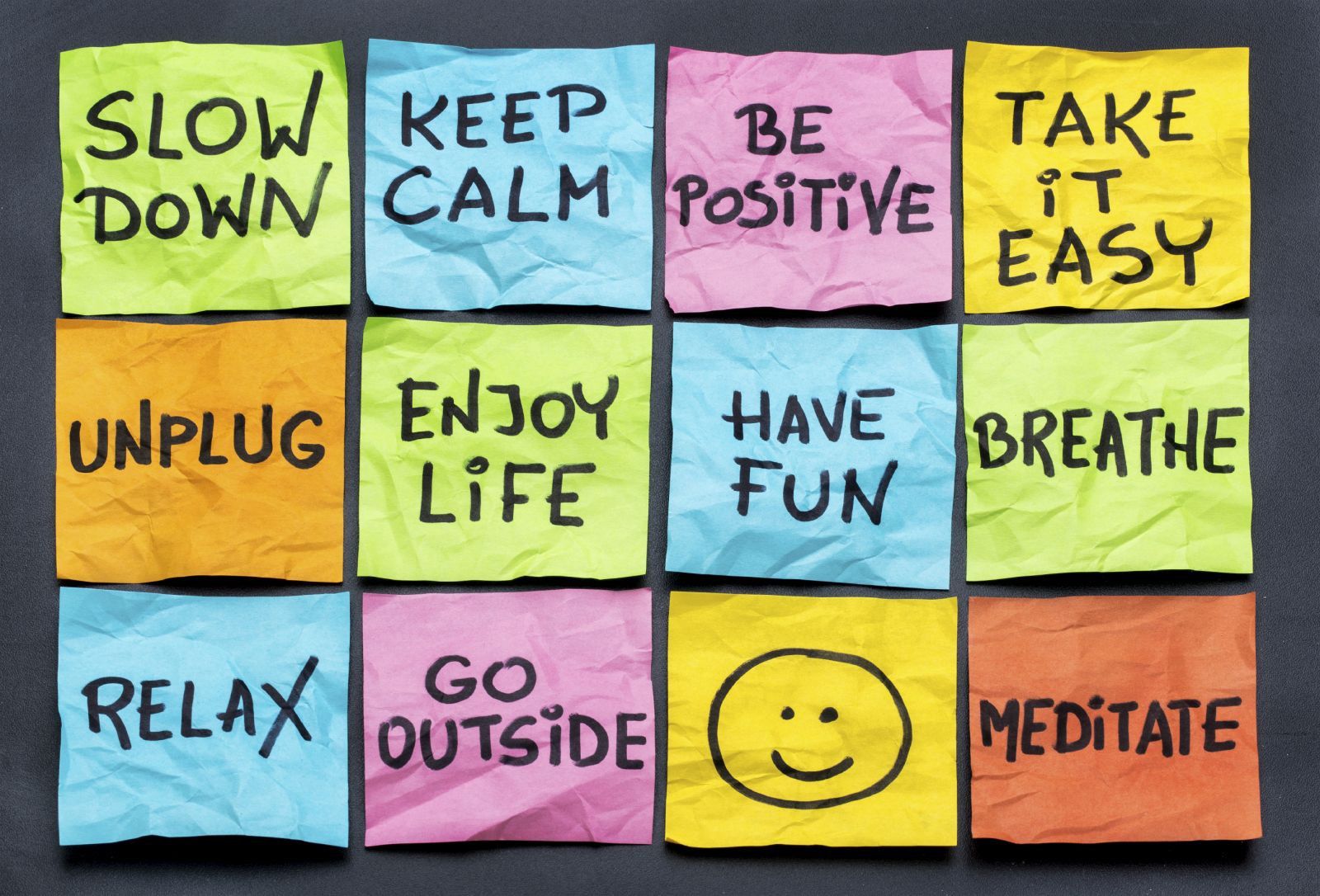

Stress and anxiety have become increasingly common in our fast-paced modern world. Many people are seeking natural ways to find relief and improve their overall well-being. Let’s explore this topic in more detail with Tic Tac Toe below as we discuss simple yet effective methods to reduce stress and anxiety naturally.
Stress and anxiety are normal human responses to challenging situations. However, when these feelings become chronic, they can significantly impact our quality of life. Stress is our body’s reaction to a perceived threat or demand, while anxiety is characterized by persistent worry and fear about future events. Both can manifest in physical symptoms such as increased heart rate, muscle tension, and difficulty sleeping.
It’s important to recognize that stress and anxiety are not inherently bad. In fact, they can be motivating forces that help us meet deadlines, prepare for important events, or stay alert in potentially dangerous situations. The problem arises when these feelings become overwhelming or persist long after the triggering event has passed.
Many factors contribute to stress and anxiety in modern life. The constant connectivity provided by technology, high-pressure work environments, financial concerns, and societal expectations all play a role. Additionally, personal experiences, genetic predisposition, and individual coping mechanisms can influence how we experience and manage stress and anxiety.
Read more: Digital Detox: How to Unplug and Reclaim Your Time
Fortunately, there are numerous natural methods to reduce stress and anxiety without resorting to medication. These techniques can be easily incorporated into daily routines and have been shown to be effective in managing stress levels.
Mindfulness and meditation are powerful tools for combating stress and anxiety. These practices involve focusing your attention on the present moment, acknowledging your thoughts and feelings without judgment. Regular meditation has been shown to reduce the activity in the amygdala, the part of the brain responsible for processing emotions like fear and stress.
To get started with mindfulness, try setting aside just 5-10 minutes each day for a simple meditation practice. Find a quiet space, sit comfortably, and focus on your breath. When your mind wanders (which it inevitably will), gently bring your attention back to your breathing. Over time, you may find it easier to maintain focus and experience a greater sense of calm throughout your day.
Regular physical activity is one of the most effective ways to reduce stress and anxiety naturally. Exercise releases endorphins, the body’s natural mood boosters, and can help to reduce tension in the muscles. Additionally, engaging in physical activity can provide a mental break from worries and anxious thoughts.
You don’t need to engage in intense workouts to reap the benefits. Even moderate activities like brisk walking, yoga, or dancing can have a significant impact on your stress levels. Aim for at least 30 minutes of physical activity most days of the week. If time is a constraint, break it up into smaller sessions throughout the day.
Quality sleep is crucial for managing stress and anxiety. Poor sleep can exacerbate feelings of stress, while chronic stress can lead to sleep disturbances, creating a vicious cycle. Establishing healthy sleep habits, also known as sleep hygiene, can help break this cycle and improve overall well-being.
Some tips for better sleep include:
. Maintaining a consistent sleep schedule, even on weekends
. Creating a relaxing bedtime routine
. Avoiding screens for at least an hour before bed
. Keeping your bedroom cool, dark, and quiet
. Limiting caffeine and alcohol intake, especially in the evening
What we eat can have a significant impact on our stress and anxiety levels. A balanced diet rich in nutrients can help support our body’s stress response and promote overall well-being.
Certain foods have been shown to have stress-reducing properties. Incorporating these into your diet may help manage stress and anxiety:
. Complex carbohydrates: Whole grains, fruits, and vegetables can help boost serotonin production, a neurotransmitter that promotes feelings of calm and well-being.
. Omega-3 fatty acids: Found in fish, walnuts, and flaxseeds, these healthy fats have been linked to reduced anxiety and improved mood.
. Magnesium-rich foods: Leafy greens, nuts, and seeds are high in magnesium, which can help regulate cortisol levels and promote relaxation.
. Probiotic-rich foods: Yogurt, kefir, and fermented vegetables support gut health, which is increasingly recognized as important for mental health.
Many herbs have been traditionally used to promote relaxation and reduce stress. While more research is needed to fully understand their effects, some popular options include:
. Chamomile tea: Known for its calming properties, chamomile may help reduce anxiety and improve sleep quality.
. Lavender: Whether used as an essential oil for aromatherapy or consumed as a tea, lavender has been shown to have anxiety-reducing effects.
. Ashwagandha: This adaptogenic herb has been used in Ayurvedic medicine to help the body resist stress and promote overall well-being.
. Lemon balm: This herb from the mint family may help reduce stress and improve cognitive function.
While herbal remedies can be helpful, it’s important to consult with a healthcare professional before starting any new supplement regimen, especially if you’re taking medications or have existing health conditions.
In addition to the techniques mentioned above, making certain lifestyle changes can have a profound impact on your ability to manage stress and anxiety in the long term.
Often, stress and anxiety stem from feeling overwhelmed by responsibilities and commitments. Learning to manage your time effectively and prioritize tasks can help reduce this sense of overwhelm.
Start by making a list of all your tasks and commitments. Then, categorize them based on importance and urgency. Focus on high-priority items first, and don’t be afraid to delegate or eliminate tasks that aren’t essential. Use tools like calendars, to-do lists, or productivity apps to stay organized and track your progress.
Remember, it’s okay to say no to new commitments if they will overburden you. Learning to set boundaries is an important part of managing stress.
Strong social connections can act as a buffer against stress and anxiety. Humans are inherently social creatures, and maintaining healthy relationships can provide emotional support, practical help, and a sense of belonging.
Make an effort to nurture your relationships with family and friends. Set aside time for regular social interactions, even if it’s just a quick phone call or coffee date. Consider joining clubs or groups related to your interests to meet like-minded people and expand your social circle.
Focusing on the positive aspects of your life can help shift your perspective and reduce stress and anxiety. Practicing gratitude involves consciously acknowledging and appreciating the good things in your life, no matter how small.
Try keeping a gratitude journal where you write down three things you’re grateful for each day. This simple practice can help train your brain to focus on the positive, even during challenging times.
Read more: How to Practice Mindfulness in Your Everyday Life
Engaging in activities you enjoy can provide a much-needed mental break from stress and anxiety. Hobbies and creative pursuits can also promote a sense of accomplishment and self-expression, boosting self-esteem and overall well-being.
Whether it’s painting, gardening, playing a musical instrument, or learning a new language, find activities that bring you joy and make time for them regularly. These activities can serve as a form of active meditation, allowing you to enter a state of flow where worries fade into the background.
Spending time in nature has been shown to have numerous benefits for mental health, including reduced stress and anxiety. The practice of “forest bathing” or simply taking a walk in a green space can lower cortisol levels and improve mood.
Try to incorporate nature into your daily routine. This could be as simple as taking a lunch break in a nearby park, keeping plants in your home or office, or planning weekend hikes or nature walks.
While technology has many benefits, constant connectivity can also be a source of stress and anxiety. Practicing mindful technology use can help create boundaries and reduce digital overwhelm.
Consider implementing strategies such as:
. Setting specific times to check emails and social media
. Using “do not disturb” features on your devices during work or relaxation time
. Taking regular digital detoxes, where you disconnect from technology for a set period
. Being selective about the content you consume online, focusing on positive and enriching material